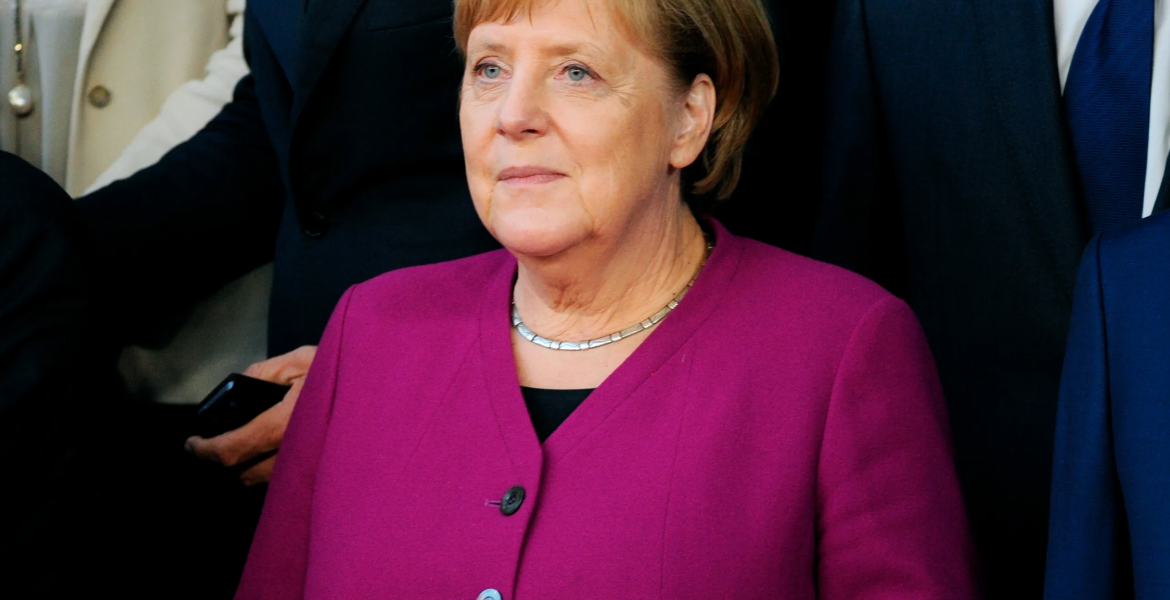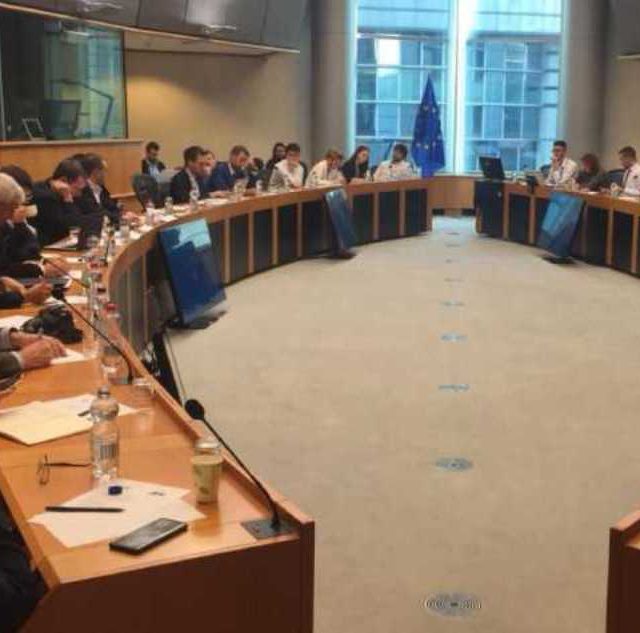Europeans still regard Angela Merkel, who will shortly step down as German chancellor, as a unifying force, and expect Germany to continue to provide leadership within the EU, according to new polling in a report published on Tuesday by the European Council on Foreign Relations (ECFR).
In “Beyond Merkelism: What Europeans expect of post-election Germany”, the report’s authors, argue that political leaders in Berlin will need to change how they engage with the EU if they are to maintain the good reputation and trust Germany has acquired over the past two decades. The new leadership in Berlin needs to offer clear-cut ideas about the EU’s geopolitical role in an increasingly competitive environment and to fight the breakdown of the rule of law in the EU, the authors write.
ECFR’s survey of 12 EU member states – which collectively comprise 300 million citizens and make up 80% of the bloc’s GDP – found that, despite being in office for over 15 years, there is enduring support within Europe for Germany’s outgoing chancellor, Angela Merkel, with many citizens selecting her, rather than the French president, Emmanuel Macron, as their preferred candidate for EU president. Overall, a plurality – 41% of respondents – would like to see her in this role, while just 14% would opt for her French counterpart.
Merkel’s popularity outweighs Macron’s across different corners of the EU – including in the Netherlands (58%), Spain (57%), Portugal (52%) and Denmark (46%) – demonstrating her success in positioning Germany as a unifying power. However, ECFR also found pessimism at home about Germany’s post-Merkel future, with a majority of Germans (52%) holding the view that their country is past its “golden age”. Across the surveyed countries, a third of Europeans (34%) shared this view, while 31% said that it is in its “golden age” today or that this period is still to come.
ECFR’s data set revealed strong and continued support for German leadership within the EU. It found that Europeans trust Germany to defend their interests across a range of issues, including economic and financial policy (36%), despite criticism of Angela Merkel’s austerity agenda during the European debt crisis and the country’s ‘schwarze Null’ (‘black zero’) budgetary balance rule. Respondents in countries with diverse economic philosophies expressed considerable confidence in German leadership across this policy area, including half (50%) of those surveyed in Hungary (which is not a member of the euro area), as well as pluralities in Spain (45%) and the Netherlands (43%).
Similarly, 35% of Europeans would be happy to see Berlin take the lead on defending democracy and human rights, on behalf of the bloc, including respondents in Hungary (49%) and Poland (23%), both of which are embroiled in a rule of law dispute with the European Commission. The polling revealed a disconnect between the way Europeans see Germany, and the way Germany sees itself. Only when it comes to defending democracy and human rights did more than a third of German respondents feel Berlin could successfully defend EU interests. One in five German respondents said the country would be unable to lead on any of the issues covered by the survey.
Berlin’s credibility, as a potential leader in geopolitics, is markedly low across Europe. Just one in five citizens across the polled member states believe Germany can lead the bloc in its relations with Russia, and even fewer (17%) think Berlin can defend EU interests when dealing with China. Only a quarter (25%) of respondents trust Germany to handle Brussels’ relations with Washington. However, there are considerable variations across the twelve surveyed countries.
These findings suggest that, while Angela Merkel has cemented Germany’s position as a great European power, the cornerstones of her legacy – neutrality and consensus building – will not be enough to defend the unity of the EU, and its place in the world, in the years to come.Key findings of the survey include:
● There is enduring support in Europe for Angela Merkel and her ambitions for the EU – with many citizens seeing her as a preferred candidate for the presidency of the bloc. When asked, hypothetically, who they would vote for in a contest between Germany’s Angela Merkel and France’s Emmanuel Macron for EU president, ECFR detected a plurality of support in most countries – and majority of support in the Netherlands (58%), Spain (57%) and Portugal (52%) – for Merkel.Netherlands (58%), Spain (57%) and Portugal (52%) – for Merkel.
● More Europeans believe that without Merkel, there would have been more conflict in the world rather than less. This view was most pronounced among respondents in Spain (33%), the Netherlands (30%) and Portugal (28%).Spain (33%), the Netherlands (30%) and Portugal (28%).
● Despite pursuing an austerity agenda during the European debt crisis and a ‘schwarze Null’ (‘black zero’) budgetary balance rule, German leadership on economic policy within the EU has considerable support. This was most pronounced in Hungary, where half of respondents (50%) indicated support for German leadership – despite Hungary not being a member of the euro area – and in Spain, where just under half held this view (45%). The Netherlands, a member of the EU’s so-called “frugal” countries, followed closely at 43%. Support was lowest in Italy, at 24%, but this was still the strongest answer among those who expressed an opinion.
● There are calls, in some parts of Europe, for greater German leadership in EU-level engagements with the United States, China and Russia. For example, in Hungary (44%), the Netherlands (33%), Denmark (30%) and Sweden (28%), would like to see Germany lead the bloc in relations with the US. There was also some appetite in these countries for greater German involvement in relations with Russia and China.
● However, Berlin’s credibility is limited on matters of geopolitics. ECFR found little support for handing Berlin the reins to the bloc’s dealings with China (17%), Russia (20%) or the US (25%). Of the surveyed member states, respondents in France, Poland, Italy and Bulgaria were most sceptical of these proposals.
● German citizens are also yet to be persuaded that their country should play a greater role within the EU. Only on standing up for democracy and human rights do more than a third of respondents (38%) believe Berlin can defend European interests.
● They are pessimistic about their country’s future, too, with a majority believing it is past its “golden age”. At 52%, of all the member states polled, they are by far the most pessimistic about their country’s future (aside from respondents in Austria, who are equally pessimistic). 24% of respondents in Germany believe that their country is in its “golden age” today or that it is still to come.
● This view is shared by a significant minority in Europe – with more than a third agreeing that Germany’s star is fading. Across the 12 countries polled, 34% of respondents say Germany is past its “golden age” – and just 10% believe it is still to come.
● Yet, despite this, very few fear a resurgence of nationalism in the country. Only 19% of German respondents see such a risk developing – compared to 27% in the other surveyed countries. 36% of Germans, meanwhile, expect their country’s leadership to become more focused on helping other Europeans. 1 in 4, in the other 11 member states surveyed, believe this will be the case.
The report’s authors, Piotr Buras and Jana Puglierin , argue that for Germany to meet EU citizens’ expectations and defend the European order, its new leadership will have to rethink its foreign and EU policy, and go beyond Merkelism. With the continent increasingly split along “democratic versus autocratic” and “cosmopolitan versus nationalistic” divides, they write, Berlin may need to take a stronger stance against countries that violate European values.
The authors point to the EU’s “geopolitical marginalisation” as a further threat to ‘Merkelism’. The days when Europe could look to the US for leadership and protection have now gone, according to Puglierin and Buras. They argue that Germany has a crucial role to play here, in defending the EU principles and interests, and should use its economic and political clout to work closely with the Biden administration on a transatlantic approach to China. They write that part of Merkel’s legacy will have been to show Europeans that “Germany’s power can be used in Europe’s interests”. And that Berlin must now find a way to wield this power in future.
The key challenge for Germany, beyond next week’s election, will be to convince its citizens that changing gears on European and foreign policy can serve both the national and EU interest. Puglierin and Buras note that, in recent years, preventing the EU from falling apart has become the mantra for defending the status quo in the EU, and that continuing this will not hold in the face of existing, and new, geopolitical challenges. Concluding, they call on Berlin to adopt a more principled stance on European values, and to develop a strategy to defend them on the global stage. This, in their view, would be the “best way to ensure that Merkel’s legacy outlives Merkelism”.
Jana Puglierin, co-author and senior policy fellow at ECFR, said, “The key challenge, for whoever wins next week’s election, will be to convince Germans that a serious shift is required in how their country engages with the EU. The approach of putting EU cohesion above all else, which has shaped much of the EU’s policy agenda during the Merkel era, could prove a tempting and immediate pathway for her successor. However, in the face of international crises, and domestic concerns about Germany’s role within the EU, a strategy of “more of the same” is unlikely to hold.”

“For Germany to retain its status as the leading driver of EU policy, it will need to engage with the issues that are important to its citizens, and provide its European partners with clear-cut ideas about how the EU can compete in a divided and crisis-shaken world.”
Jana Puglierin
“Merkel’s successors will need to demonstrate why a post-Atlanticist approach to foreign policy is now key, while at the same time selling the importance of German leadership in the bloc to their voters at home. They can no longer afford to remain neutral, or pursue the status quo. It is time for Berlin to take sides.”
Piotr Buras, co-author and head of ECFR’s Warsaw office, added, “Angela Merkel has come to embody a strong and stable Germany – positioning herself as Europe’s anchor through more than a decade of crises. Throughout her time in office, she has built up Germany’s role within the EU. But while European citizens are pinning their hopes on Berlin to steer the bloc, it is a legacy Germans themselves are not wholly comfortable with.”
‘Merkelism’ is no longer sustainable, and Germany’s next chancellor will have to find another way forward. Merkel may have adroitly maintained the status quo across the continent over the past 15 years, but the challenges that Europe faces now – the pandemic, climate change, and geopolitical competition – require radical solutions, not cosmetic changes. What the EU needs now is a visionary Germany that will stand up for the bloc’s values and defend its place in the world.”
This report and its recommendations form part of a wider project by ECFR to understand the wants of Europeans, with regards foreign policy. Prior publications from its ‘Unlock Europe’s Majority’ programme include examinations of how the COVID-19 crisis has re-ordered political views and identities over the past 18 months, as well as polling-backed research into European attitudes towards, and expectations of, the United States during the Trump and Biden presidencies.




